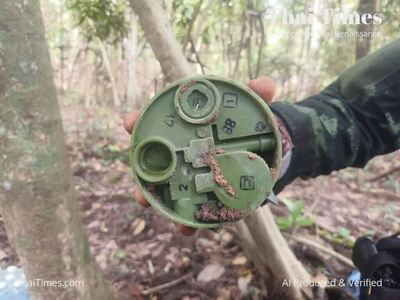Thai President Foods Postpones Expansion Plans in Hungary Due to Cost Concerns
Rising expenses and labour policies lead to a halt in Mama noodle production capacity expansion in Europe.
Thai President Foods Plc, the manufacturer of Mama instant noodles, has announced the postponement of its planned expansion in Hungary.
According to Pun Paniangvait, general manager of Thai President Foods, the decision comes in light of increasing operational costs and a challenging labour policy environment.
Earlier this year, the company had aimed to double its production capacity in Hungary by 2025.
This expansion included plans to establish a new facility at the existing site, which currently utilizes only half of its available space.
However, concerns over the feasibility of this plan have emerged due to the Hungarian authorities’ restrictions on work permits for foreign workers, limiting them to a duration of only 2-3 years.
This policy has led the company to reconsider its strategy, as it intended to bring Thai employees, who possess the necessary expertise in the manufacturing process, to work at the new facility.
Further complicating the situation are rising construction costs and increased energy prices in the region surrounding the facility, which have extended the anticipated return on investment period to seven years.
This duration does not align with the company's operational goals, prompting them to continue operations at the current plant instead.
As it stands, the Hungarian facility operates with a production capacity of 600,000 noodle packets per day.
In Thailand, the company currently operates with a capacity of 7 million packets daily.
As of January 2025, 29 pieces of production machinery are active in Thailand.
Recently, the company added new machinery to its Lamphun plant last year and has plans to further enhance its operations at the Rayong plant this year.
Mr. Pun noted that the production machinery is custom-made, which results in longer preparation times.
In terms of product demand, the company is witnessing a notable increase in the popularity of larger packs of Mama noodles and premium offerings such as Mama Ok. This rise in demand has caused some capacity constraints, particularly for its premium product segments.
However, more affordable options like the 7-baht packs of Mama noodles still present opportunities for potential expansion due to available production capacity.
Raw material costs, including those for palm oil and fuel transport, have remained relatively stable and manageable, providing some relief amidst the shifting economic landscape.
According to Pun Paniangvait, general manager of Thai President Foods, the decision comes in light of increasing operational costs and a challenging labour policy environment.
Earlier this year, the company had aimed to double its production capacity in Hungary by 2025.
This expansion included plans to establish a new facility at the existing site, which currently utilizes only half of its available space.
However, concerns over the feasibility of this plan have emerged due to the Hungarian authorities’ restrictions on work permits for foreign workers, limiting them to a duration of only 2-3 years.
This policy has led the company to reconsider its strategy, as it intended to bring Thai employees, who possess the necessary expertise in the manufacturing process, to work at the new facility.
Further complicating the situation are rising construction costs and increased energy prices in the region surrounding the facility, which have extended the anticipated return on investment period to seven years.
This duration does not align with the company's operational goals, prompting them to continue operations at the current plant instead.
As it stands, the Hungarian facility operates with a production capacity of 600,000 noodle packets per day.
In Thailand, the company currently operates with a capacity of 7 million packets daily.
As of January 2025, 29 pieces of production machinery are active in Thailand.
Recently, the company added new machinery to its Lamphun plant last year and has plans to further enhance its operations at the Rayong plant this year.
Mr. Pun noted that the production machinery is custom-made, which results in longer preparation times.
In terms of product demand, the company is witnessing a notable increase in the popularity of larger packs of Mama noodles and premium offerings such as Mama Ok. This rise in demand has caused some capacity constraints, particularly for its premium product segments.
However, more affordable options like the 7-baht packs of Mama noodles still present opportunities for potential expansion due to available production capacity.
Raw material costs, including those for palm oil and fuel transport, have remained relatively stable and manageable, providing some relief amidst the shifting economic landscape.











